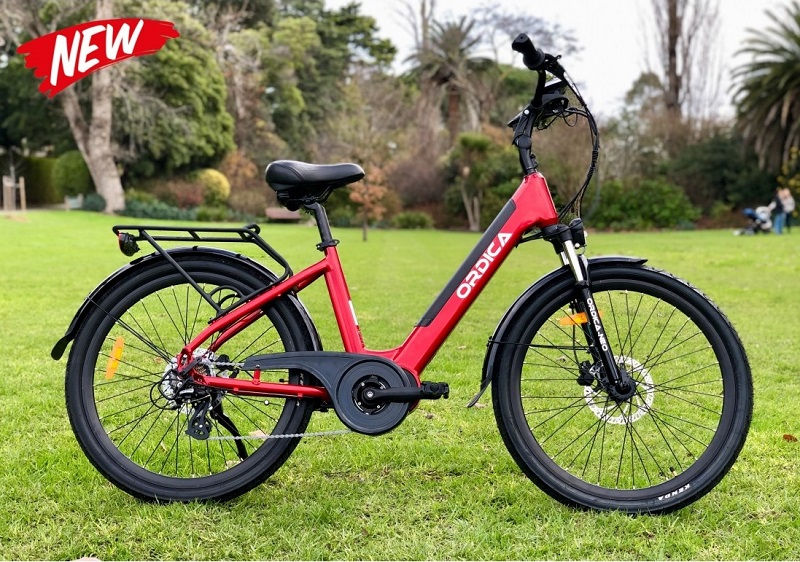Evolution and Future of Electric Bikes
- Mike Warner
- Mar 11, 2023
- 3 min read
Updated: Sep 18, 2024
Electric bikes (e-bikes) have been gaining popularity in recent years, and many people wonder if they are the future of transportation. E-bikes are getting more and more popular for a number of reasons, and this trend is set to continue in the years to come.
Whether or not e-bikes are the future of transportation is a complex question that depends on various factors, including technological advancements, infrastructure development, and cultural attitudes toward vehicles. However, it is clear that e-bikes offer several benefits and are likely to continue to grow in popularity in the coming years. E-bikes are expected to become a more popular form of transportation for individuals and communities worldwide as more people become aware of their advantages in terms of the environment, their health, and their economy.

Development of Electric Bikes:
Every electric bike has undergone significant developments in recent years, including:
Battery technology: E-bike batteries now have far better battery technology, which increases their strength, effectiveness, and longevity. Lithium-ion batteries have become the most popular type of battery used in e-bikes. They offer a high energy density and are lighter in weight than other types of batteries.
Motor technology: Every electric bike motor has also undergone significant advancements, with manufacturers now offering a range of engines with varying levels of power and torque. Inbuilt sensors in some motors today can recognise when a rider is pedalling and change the level of assistance accordingly.
Design and materials: Electric Bikes are now designed to be sleeker and more stylish, with many models featuring lightweight frames made of materials such as aluminium, carbon fibre, or titanium. This makes e-bikes more agile and easier to handle than older models.
Connectivity: Many e-bikes now feature connectivity options, such as GPS tracking and smartphone apps, that provide riders with real-time information about their location, speed, and battery level.
Increased range: The range of electric bikes has also increased, with some models now capable of travelling up to 100 miles on a single charge. This has made e-bikes a more practical and feasible transportation option for longer distances.
Safety features: Electric Bikes now come with various safety features, such as improved lighting and braking systems, to ensure rider safety on the road.
Regulations: Governments worldwide have introduced rules to promote the use of electric bikes and ensure their safety on the road. This has led to the development of e-bikes that meet these regulations and can be legally ridden on public roads.
What are the benefits of using electric bikes?
The electric bike (e-bike) offers several advantages and limitations compared to traditional bicycles and other forms of transportation. Here are some of the main benefits and limitations of e-bikes:
Environmentally friendly: The electric bike emits fewer greenhouse gas emissions than cars and motorcycles, making them the more sustainable and environmentally friendly mode of transportation.
Cost-effective: Electric Bikes are generally less expensive to purchase and maintain than cars, motorcycles, or public transportation.
Health benefits: Each electric bike provides a low-impact form of exercise that can improve cardiovascular health, reduce stress, and improve overall fitness.
Increased accessibility: Electric Bikes are a more accessible form of transportation for individuals with limited mobility or physical disabilities.
Convenient: Electric Bikes can be used for various purposes, including commuting, running errands, and leisure activities, and can be ridden on bike lanes, paths, and some roads.
What are some of its limitations of it?
Limited range: Electric Bikes are limited due to their battery capacity, which may make them unsuitable for longer commutes or trips.
Speed limitations: Every electric bike may be slower and more efficient than cars or other forms of transportation for longer commutes or trips.

Conclusion:
Every electric bike offers several advantages over traditional bicycles and other forms of transportation, including their environmental sustainability, cost-effectiveness, health benefits, increased accessibility, and convenience. However, they also have limitations, such as their limited range and speed, battery life and charging time, terrain options, and regulatory restrictions. As technology advances and e-bikes become more widely adopted, these limitations may be addressed, and e-bikes become an even more popular mode of transportation.







Comments